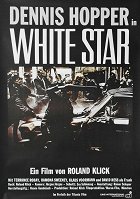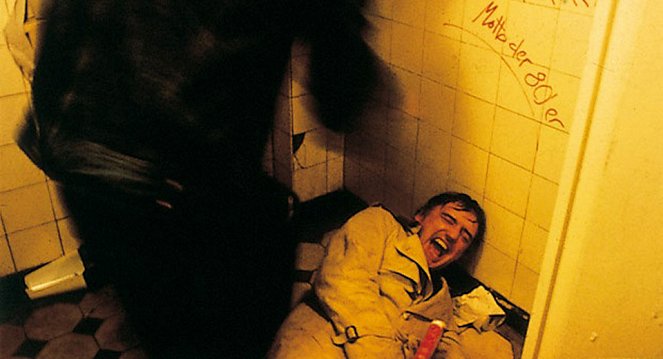Director:
Roland KlickGuión:
Roland KlickCámara:
Jürgen JürgesReparto:
Dennis Hopper, Terrance Robay, Ramona Sweeny, David Hess, Christian Brückner, Stefan Staudinger, Shaun Lawton, Ute Cremer, Cathy Haase, Klaus Voormann (más)Sinopsis(1)
This cursed film is fascinating like a falling star - this spectacular tragedy offers a timeless study of promotion practices that use corrupt methods to sell even beautiful pieces of art and noble ideas. Dennis Hopper shows his most personal, destructive and cocaine performance. (Summer Film School)
Reseñas (2)
Dennis Hopper se apropia de la película, com una actuación cargada de cocaína, loca y sudorosa, pero al mismo tiempo no se le puede negar una actuación sensible de primer orden. Es difícil imaginar a otra persona com Kenneth Barlow, un productor musical que vive en la niebla casi disuelta de su antigua fama, que ya ha pasó hace tiempo. Y aunque en palabras del director Roland Klick, fue infernal rodar con Hopper, debido a su adicción a las drogas, quizás su frenesí alimentado por la cocaína acabó añadiendo valor a la película. White Star es una tragedia de carácter, cuyo eco perdura en mí durante algún tiempo después de verla. [EPA 2018]
()
White Star was supposed to be the peak of Roland Klick’s filmography, a major international project with a respected Hollywood actor in the lead role. Unfortunately for the director, however, that actor was Dennis Hopper. On the one hand, Hopper had become a renowned icon of American independent film thanks to Easy Rider (1969) and later confirmed his status as an actor in Mad Dog Morgan (1976), The American Friend (1977) and Apocalypse Now (1979). In Klick’s film, his role was to be that of a pragmatic promoter who tries to make a naïve musician a star using dubious methods. Hopper was enthusiastic about the project and later went so far as to say that it was his most personal part. This was in no small part due to Klick’s creative method, the essence of which consists in creating characters based on the actors and letting the actors merge with their respective characters and bring them to life with their own personality instead of conforming to strictly predefined roles. At the time, however, Hopper was at the absolute peak, or rather rock bottom, of his cocaine addiction, which meant that he not only had wild outbursts of emotion and sudden mood swings during filming, but that he mainly was actually usable for only about two hours a day. With an erratic lead actor and a limited shooting schedule, Roland Klick was forced to edit the script on the fly and come up with solutions for the lack of exposition to Hopper’s scenes that the actor was unable to perform. The result is a defective work, but at the same time, it is a fascinating cinematic phenomenon thanks to its impulsiveness, roughness, ellipticity and manic nature. It is necessary to recognise that, despite all of the circumstances of the filming, Klick managed to pull out of Hopper’s performance a relatively functional portrait of a self-absorbed and self-destructive maniac, which is even more meaningful today in the era of coked-up managers and the monstrous machinery of the PR industry. [written for the 2018 Summer Film School]
()


Anuncio